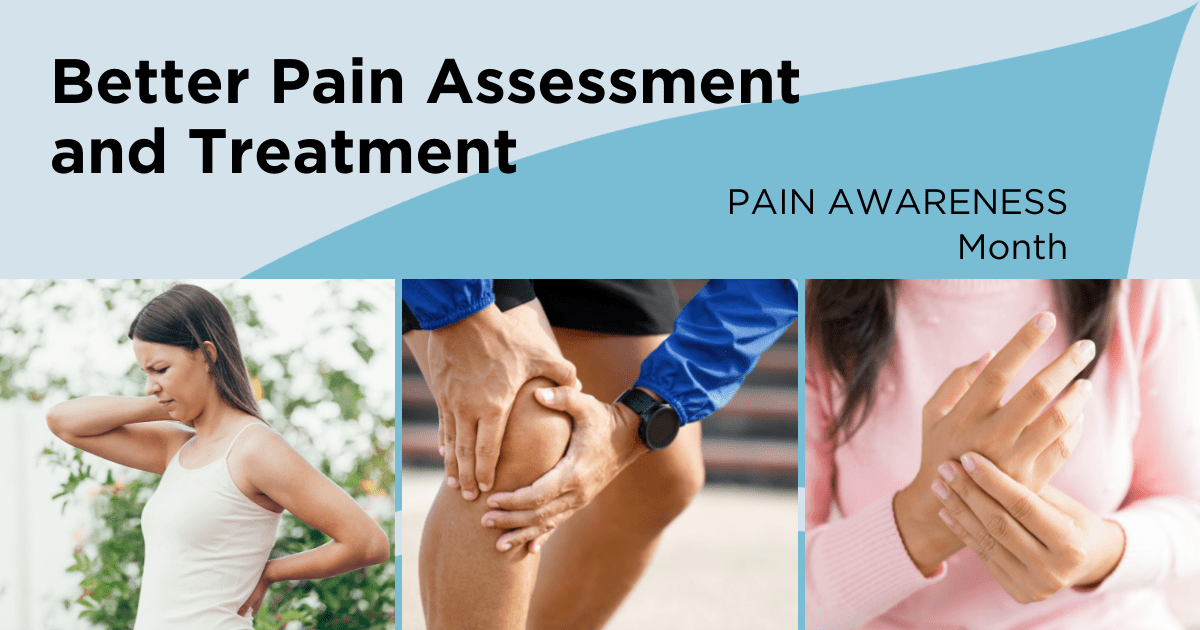Anesthesia providers at Amberwell Atchison are working to bring attention to the need for better pain assessment and treatment. Our efforts are part of activities planned by Partners for Understanding Pain (ACPA), a consortium of more than 80 professional and consumer organizations that have an interest in pain and its effects, for September’s Pain Awareness Month activities. David Hart, DNP, CRNA, NSPM-C, is a Certified Registered Nurse Anesthetist (and retired Army Major) who received his graduate education at the Uniformed Services University of the Health Sciences, his doctorate at Chatham University, completed a nonsurgical pain management training from the University of South Florida and is certified in nonsurgical pain management. David wants you to know that the anesthesia staff at Amberwell Atchison is committed to providing advanced pain management to Atchison and the surrounding communities and are well poised for offering evidence-based methods using the latest imaging technologies for both chronic and acute surgical pain. His drive for providing these services is rooted in the paragraph below.
Did you know:
- Pain is the number-one cause of adult disability in the United States and affects one-in-three people or about 100 million Americans.
- Pain costs an estimated $560 to $635 billion annually in lost workdays, medical expenses, and other benefit costs.
- Unmanaged pain can slow the rate of recovery for surgical patients and affect the quality of outcomes.
- Cancer patients who experience breakthrough pain are hospitalized and visit the emergency room more often than patients whose pain is under control.
- Despite its pervasiveness, few physicians receive more than a few hours of formal training on pain management.
Pain is a major economic issue.- According to the National Institute for Occupational Safety and Health, pain costs $100 billion annually in lost workdays, medical expenses, and other benefit costs.
- Skyrocketing health care costs leave some, especially senior citizens, minorities, and the urban and rural poor, unable to get treatment that can help them manage their pain.
- Pain is a major social issue.
- Long-term, unmanaged pain can cause people to withdraw from family and friends and leave them unable to care for children, hold steady jobs, and at times even face a personal future.
- Pain has an impact on the fabric of society well beyond the individual, affecting his or her spouse or partner, children, family, and community.
- Unmanaged pain can slow the rate of recovery from surgery.
- Cancer patients with unmanaged pain are hospitalized and visit the emergency room more often than patients whose pain is under control.
David adds, “We feel that by offering well understood methods of pain management and through the dedication and training of our providers our service rivals that of the larger organizations in the area. That is something we’re very proud of.”
Micah Reece, DNP, CRNA, is a certified registered nurse anesthetist at Amberwell Atchison. He received his anesthesia education and doctorate through Kansas University and has been with us for just over a year. Our staff is committed to employing specialized pain management services to our community. Micah writes, “In years past, this has been treated largely with opioid pain medications; however, these medications come with a significant side effect profile, including gastrointestinal symptoms (nausea and vomiting) and the potential for addiction. As trained anesthesia providers, we constantly strive to deliver the most effective pain control treatments with the lowest risk of side effects.
“The result is minimizing the amount of narcotic pain medication we give to our patients to get the most benefit from these kinds of drugs while lowering the potential side effects. We can give less of these medications by combining their use with other means of pain control (this is known as a “multimodal” approach) including the use of other, non-narcotic drugs or by simple measures like encouraging things most of our patients do at home like apply heat pads or ice packs to an effected area.
“We have found that many of our patients are largely very receptive to this strategy as we incorporate non-opioid methods of pain control into our patient teaching; most Americans are very well aware of the opioid epidemic within our country and our patients are eager to do what they can to decrease the opioids needed for a procedure or surgery. I use several of my favorite simple, non-pharmacological techniques almost daily with my surgical patients. Before helping a patient fall asleep, I will often have a patient focus on their breathing and, together, we will use a technique called guided imagery where the patient closes their eyes and imagines one of their favorite places to be as we start providing an anesthetic. We can even add a patient’s favorite music to this process for a very peaceful and calm start to an otherwise stressful time that makes many patients anxious.
“Another service we provide many of our patients is the use of regional/peripheral nerve blocks, where we use an ultrasound machine to identify nerves that transmit pain from the surgical site and accurately deliver numbing medicine to the area for many hours of effective pain control. Critical Access Hospitals, like Amberwell Atchison, play a vital role in providing non-narcotic analgesic techniques (for example, cryoanalgesia, delivery of steroids into painful areas (epidural space, trigger points or sacroiliac joints) to our community in northeast Kansas that would otherwise be underserved for such treatments. Such a clinical setting is also an ideal practice setting for an anesthesia provider as it allows us to utilize our full scope of practice to provide patients the treatments they need.”
In addition to recognizing September as Pain Awareness month, the anesthesia staff is coordinating web-based training for all nurses, physicians and physicians associates of Amberwell for free through Providers Clinical Support System. The training covers up-to-date and evidence-based information on the best opioid prescribing practices and treatment of opioid use disorder. After completing the 13-module educational offering, Amberwell healthcare professionals should see an increase in their competence and confidence as they treat patients who may suffer from chronic pain.


